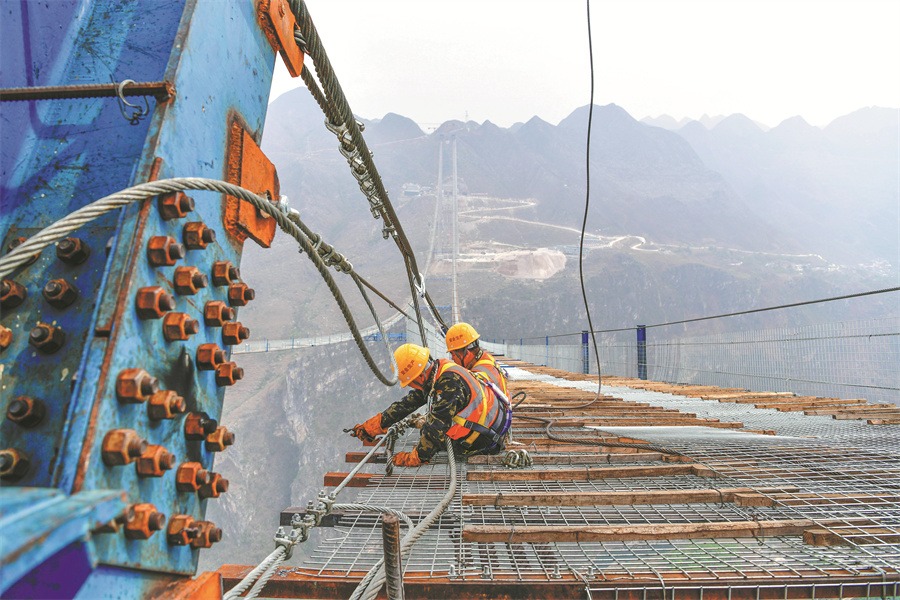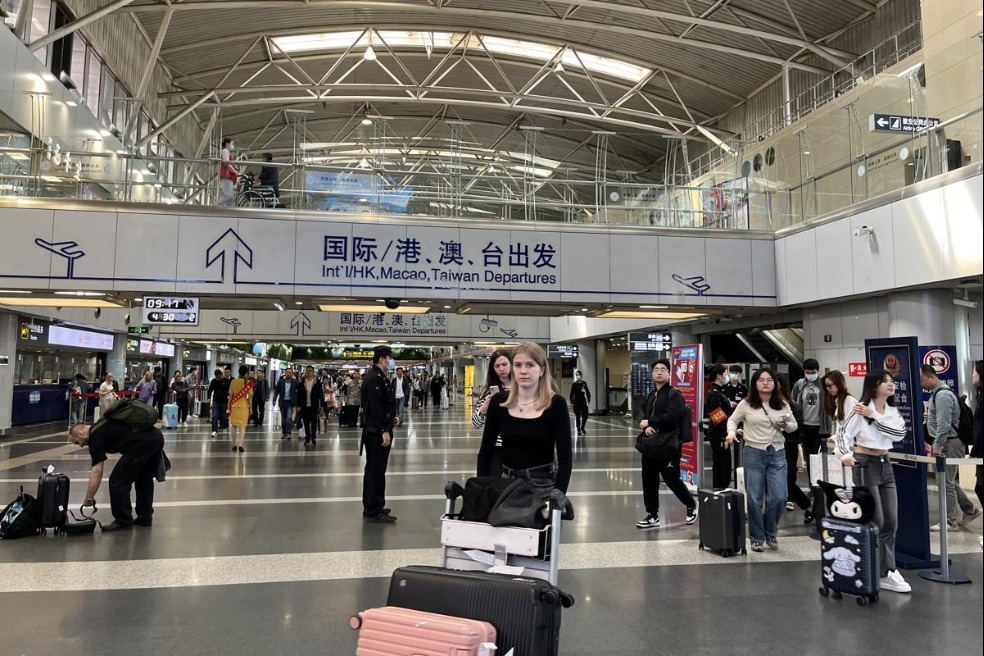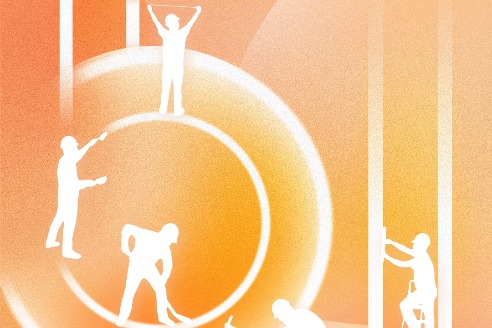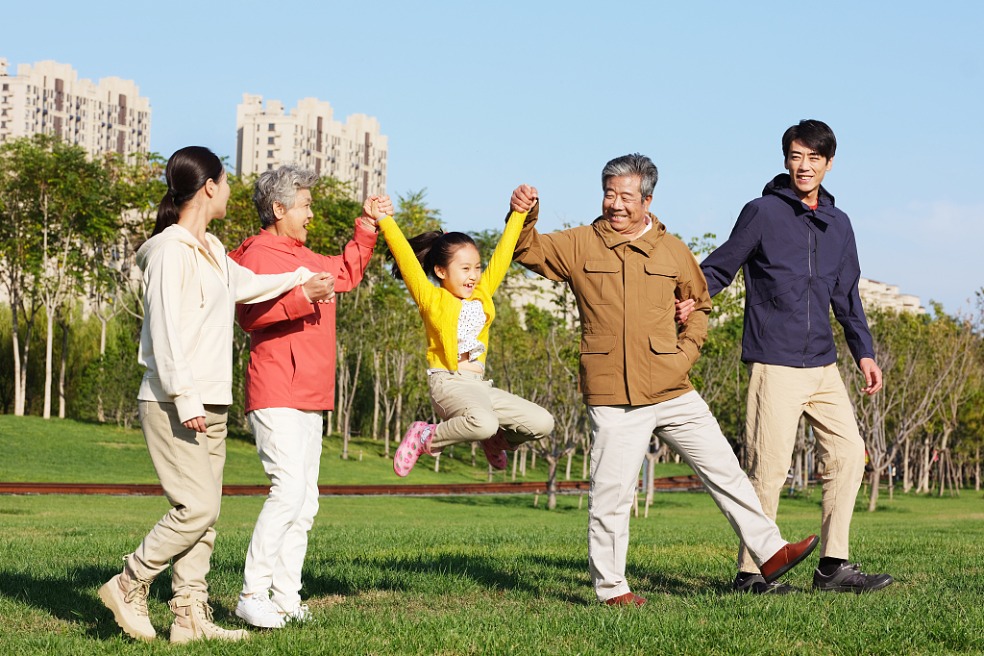US turns to ‘social distancing’ to contain virus

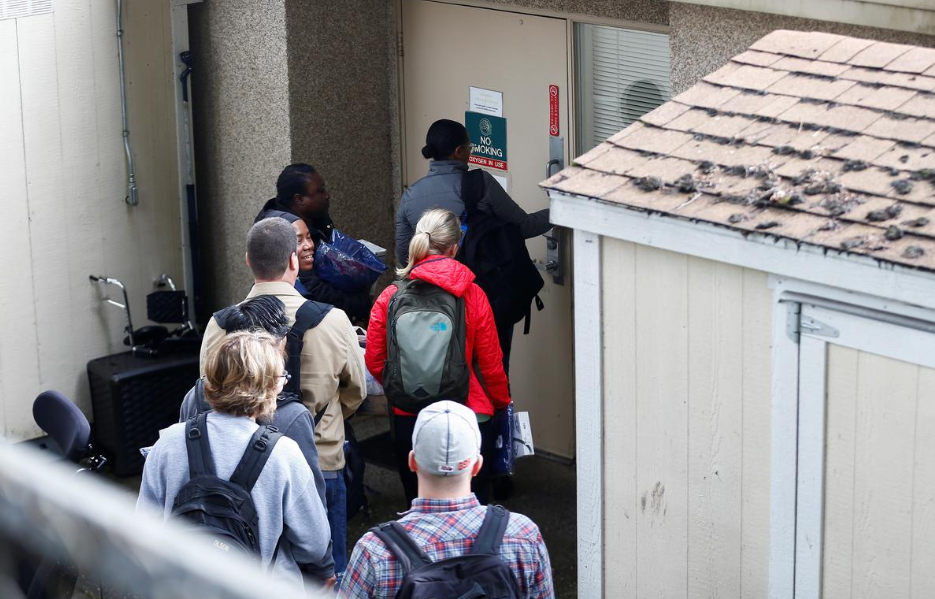
Government leaders seek alternatives to the kind of lockdowns used in China and Italy to stem COVID-19
The Italian government has locked down an entire country of 60 million people to stop the spread of the coronavirus, but experts say any type of lockdown in the United States would be unworkable.
The possibility of "regional lockdowns" in the US was raised Sunday by Dr Anthony Fauci, director of the National Institute of Allergy and Infectious Diseases and a member of President Donald Trump's coronavirus task force.
But on Monday he said, "I don't think you want to have folks shutting down cities like in northern Italy — we are not at that level. Social distancing, like in Seattle, is the way to go."
"Social distancing" is a strategy aimed at reducing the opportunities for a disease to spread person to person among individuals who are not known to have been infected or exposed, based on the assumption that many in the community are contagious without knowing it, Lindsay F. Wiley, professor of law and director of the Health Law and Policy Program at American University in Washington, told China Daily.
Many cities and states have adopted aggressive social distancing strategies to suppress the outbreak, such as employees working from home, students switching to online classes, and organizations canceling or postponing large gatherings.
New York Governor Andrew M. Cuomo announced Tuesday that schools, temples, churches and other large gathering places within a one-mile zone of the city of New Rochelle will be shut down for two weeks as the state fights the viral epidemic.
During the period, National Guard troops will help clean facilities and deliver food inside the containment zone.
"So far, social distancing is voluntary in the US," said Wiley, "but as the outbreak unfolds, we're likely to see more mandatory measures directed at certain types of businesses or organizations."
"If so, mandatory orders could be enforced via inspections and court orders, similar to how a fire marshal can shut down an event if it becomes too crowded or a health inspector can shut down a restaurant if food safety violations are detected," she said.
The World Health Organization (WHO) announced Monday that the new coronavirus known as COVID-19 is close to becoming a pandemic, a disease widespread around the world, as the organization defines it.
The global epidemic reached a new stage Monday with confirmed cases outside China tripling over the previous week. In the US, there are more than 950 reported cases of COVID-19 detected in more than 30 states as of Tuesday, which has prompted many states to declare states of emergency.
"Early data suggests that in Wuhan, the most effective measures taken to contain transmission include cancellation of mass gatherings," said Claire Standley, assistant research professor at the Center for Global Health Science and Security of Georgetown University, in an email.
"The amount of data being generated and shared publicly and rapidly during this outbreak is unprecedented," she said, "so public health officials have the opportunity to look at the evidence of what has worked in other places in order to inform their decision making, and determine the types of interventions to implement."
This approach will have the greatest public health impact while minimizing social and economic disruptions, she said.
In the US, most quarantines are voluntary, so individual school districts and businesses are making decisions about whether to close or cancel events, but health officials have authority to impose a mandatory order subject to enforcement by the police, according to Wiley.
Mandatory orders tend to be more common for people who are diagnosed while they are in transit or for people who have demonstrated an unwillingness or inability to comply with a voluntary order, she added.
Public health decisions are often influenced by other factors, like economic or political concerns.
"In the US, state and local authorities have jurisdiction for health issues — a paper by my colleague Rebecca Katz from a few years ago showed that these local authorities take economic factors substantially into consideration when making decisions about social distancing," said Standley.
Wiley also noted that public health decisions are inherently political, which is "unavoidable".
"Government authorities must act in the absence of complete information, and they must make judgments about how to balance different values and handle trade-offs among different types of health risks," she said.
Instead of a "lockdown", Wiley said a cordon sanitaire — a geographic boundary with strict limits on who can move in and out — is highly likely in the US in response to the COVID-19 epidemic.
Enclosing people who have not yet been exposed to the virus along with the exposed and infected in a confined area would be potentially unconstitutional, she said.
"Mandatory orders for people to stay indoors for prolonged periods of time or be subject to police enforcement are highly unlikely and would be unconstitutional in the US under most circumstances," said Wiley. "With strong public health risk communication, the hope is that people understand the importance of maintaining a certain distance to reduce transmission and thus adhere to it without needing enforcement.
Comparing the US situation with other places, John Swartzberg, clinical professor emeritus at UC Berkeley's School of Public Health, said: "When you see a country like Italy, which is much more similar to the United States in terms of its Western heritage of individuality, is doing the same thing (a lockdown), it makes one recognize that what's going to determine how aggressive a society needs to act is how severe the epidemic is.
"Americans might be more reluctant to accept a lot of the measures that have been used in Italy or in China," he said, "but if the epidemic is bad enough, they will be forced to accept them."
- China to launch Chang'e-6 lunar probe on May 3
- Xi Focus-Closeup: Glory and dreams rooted in spade
- Shehuo performance showcases folk culture in Shanxi
- Increased frequency of extreme weather due to lag effect of El Nino, expert says
- Xi replies to letter from steelworkers in Serbia's Smederevo
- Highway collapse kills 24 in Guangdong

















